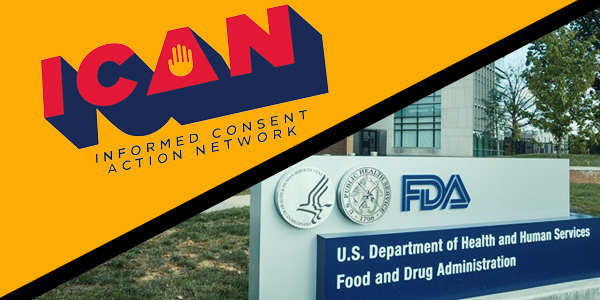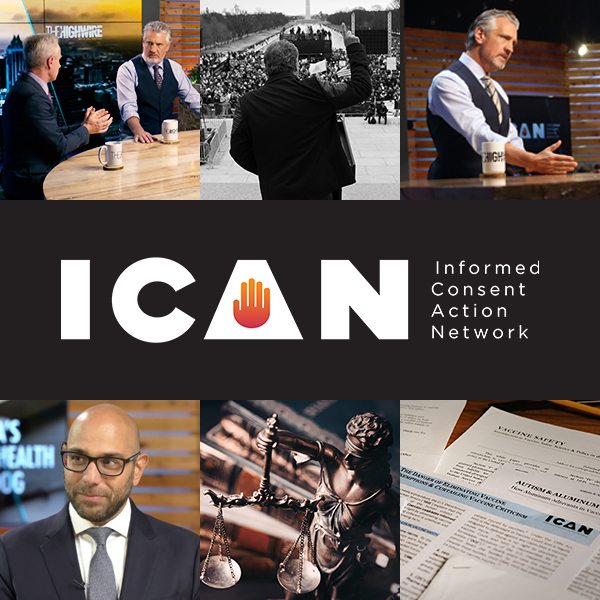Share this:

ICAN, through its attorneys, has provided the U.S. Department of Health & Human Services (HHS) and the Food and Drug Administration (FDA) numerous opportunities over the past three years to provide proof it licensed the vaccines for Hepatitis B based on clinical trials that reviewed safety for more than five days after injection. All that HHS and FDA have provided in response are a litany of excuses — not science. ICAN’s attorneys therefore filed a lawsuit against the FDA to obtain clinical trials that show safety was reviewed for more than 7 days before the Hepatitis B vaccine, Engerix-B, was licensed. The FDA did not produce any documents and therefore ICAN sought summary judgment from the Court and awaits a decision.
The Centers for Disease Control and Prevention (CDC) childhood vaccine schedule recommends universal vaccination of all infants with a Hepatitis B vaccine at birth, 1-month of age, and 6-months of age. There are only two Hepatitis B vaccines licensed for administration to newborns: Engerix-B and Recombivax HB.
A supporter of ICAN told us in 2017 that the clinical trials the FDA relied upon to license these vaccines only reviewed safety for a few days after injection. ICAN found this claim incredible. It assumed the claim was likely false. It seemed improbable because Congress mandated that the FDA only license drugs which have been proven to be “safe and effective” in a clinical trial, and five days of post-injection safety data would be patently insufficient to demonstrate safety. This is why drugs, such as Enbrel, Lipitor, Belviq, and Botox, typically given to adults, had safety review periods of 6.6 years, 4.8 years, 2 years, and 51 weeks respectively, and each was tested against a placebo control group. The FDA even states that the clinical trial relied upon for licensure is typically “1 to 4 years” in duration.
If anything, the safety review period in a clinical trial for a vaccine given to babies and toddlers should be longer since autoimmune, neurological, and developmental disorders will often not be diagnosed until after babies are at least a few years old. Indeed, a 2019 review of 306 pediatric studies, authored by researchers at the FDA and Duke University, explained that, compared to licensing a drug for adults, “data on drug efficacy and safety in children may require an additional 6 years.”
Putting this all together, it seemed like science fiction to claim the Hepatitis B vaccines were licensed by the FDA based on only a few days of post-injection safety data. That was, until ICAN reviewed the package insert for Engerix-B issued by its manufacturer, GSK, and approved by the FDA. To ICAN’s amazement, the package insert states that safety in these clinical trials was only reviewed for a few days post-injection into babies.
Therefore, on October 12, 2017, ICAN sent a letter to HHS demanding that it “list and provide the safety data relied upon when recommending babies receive the Hepatitis B vaccine on the first day of life.” On January 18, 2018, HHS (in a response reviewed and approved by the FDA) responded by letter in which it failed to provide any clinical trial supporting the safety of either Hepatitis B vaccine that reviewed safety for more than a week post-injection.
After careful review of every single study HHS cited, ICAN responded on December 31, 2018 in a letter which pummeled HHS for failing to provide a single clinical trial reviewing safety of the Hepatitis B vaccines for more than a week post-injection to babies. ICAN even provided HHS and the FDA another opportunity to provide any such data, including sending a follow-up letter repeating this demand on March 12, 2020. HHS and FDA still have not provided any such data.
ICAN’s legal team made a similar request to the FDA for Engerix-B in June 2019 but this time only requested clinical trials that reviewed safety for more than a week post-injection. ICAN wanted to review and share with the public these clinical trial reports and safety data relied upon when the FDA licensed this vaccine.
The FDA refused to respond to this request and ICAN’s legal team filed a federal lawsuit on January 24, 2020 against the FDA demanding it respond to this request. The FDA answered but did not produce any documents. Both parties moved for summary judgment. The FDA’s overriding argument is that it does not understand what a “safety review period” is and therefore, it could not possibly produce responsive documents. ICAN argued to the Court that, “surely, the FDA knows how long safety was reviewed in the clinical trials on which it relied. The FDA’s claim that it requires ‘clairvoyant capabilities’ to determine how long safety was reviewed simply cannot be true.” We await a decision from the Court.
